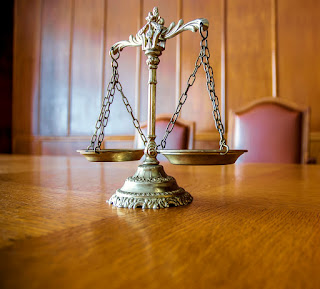Forming a Cultural Heritage Crimes Prosecution Team to Hold Antiquities Traffickers Accountable
If you can imagine a world where police recover stolen cash, illegal drugs, and hijacked autos but let the bank robbers, narcotics dealers, and carjackers go free, then you can understand the unrestrained business of transnational antiquities trafficking.
It’s time for a team of skilled and motivated prosecutors to build solid criminal cases to convict and imprison smugglers, and to send a strong signal that assailing heritage will be met with tough consequences.
Antiquities traffickers are making illegal profits and getting away with crimes like smuggling, receiving stolen property, money laundering, wire fraud, lying on customs forms, and lying to federal agents. While customs officials sometimes seize illegal antiquities—when officers actually find these hard-to-spot imports—traffickers rarely face prosecution. Among the few defendants who have been prosecuted, many have exited the courthouse with minor convictions or light sentences while retaining their cash and criminal networks.
A specialized group of prosecutors should be assembled to hold traffickers accountable. A modest group of four specialized prosecutors should be assigned to form a new Cultural Heritage Crimes (CHC) Section within the Criminal Division at the U.S. Department of Justice (DOJ) in Washington, DC. The CHC Team would be headed by one prosecutor. Another prosecutor in the Asset Forfeiture and Money Laundering Section would be assigned to work with the CHC Section when heritage trafficking cases arise. A third attorney would be assigned to handle cases in the Criminal Division at the U.S. Attorney’s Office in Manhattan, at the heart of America’s art and antiquities marketplace, while another would pursue forfeitures and repatriations in that office’s Civil Division. All four would be expected to work with each other and with federal, state, county, and local investigators.
Because transnational antiquities trafficking mimics the methods and scope of wildlife trafficking, the objectives and activities of DOJ’s Environmental Crimes Section (ECS) should be mirrored. DOJ explains, “An ECS prosecutor often gets involved early in an investigation, such as when the investigator swears out a search warrant or when a grand jury’s investigative power is needed. Once the necessary evidence is collected, the prosecutor presents the case to the grand jury for indictment. After indictment, the prosecutor guides the case through complex white collar and environmental law issues and prepares it for trial.”
Among the CHC Team’s objectives would be to
-
Seek criminal convictions and meaningful sentences.
-
Press for fair but punitive sentences that deter other would-be smugglers and accomplices.
-
Break down criminal infrastructures by dismantling supply, transportation, conservation, distribution, marketing, legal, accounting, and sales networks.
-
Cultivate intelligence on the operation of the black market.
-
Support federal investigators by reviewing search warrants and coordinating overseas law enforcement resources.
-
Partner with state, county, and local authorities.
-
Provide investigative and legal training.
Implementing this recommendation would more effectively hold antiquities traffickers accountable. To learn more about this proposal, read the policy brief titled “How to End Impunity for Antiquities Traffickers: Assemble a Cultural Heritage Crimes Prosecution Team” at the new Antiquities Coalition Think Tank.
Text and original photos copyrighted by Cultural Heritage Lawyer, a blog commenting on matters of cultural property law, art law, cultural heritage policy, antiquities trafficking, and museum risk management. Blog url: culturalheritagelawyer.blogspot.com. Any unauthorized reproduction or retransmission of any blog post without the express written consent of CHL is prohibited. CHL is a service of Red Arch Cultural Heritage Law & Policy Research, Inc.


